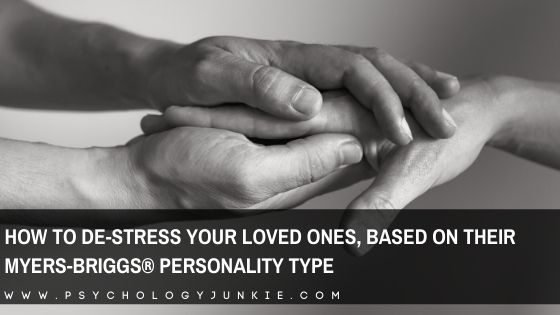Here’s What You Got in Trouble for as a Teen, Based on Your Personality Type
When you were a teenager did it feel like you were constantly getting reprimanded or sent to your room? Was punishment a rare occurrence because you naturally respected the rules? Over the years I’ve surveyed hundreds of individuals from each personality type to find patterns. Recently I’ve been asking people about the teen years and whether or not they were frequently in trouble and, if so, what for. The answers varied, but certain issues were brought up again and again by different types. Here are some things I noticed:
NP Personality Types: These types tend to question the rules and play devil’s advocate. They want time for exploration, and they want to challenge ideas. They often considered themselves rebels or outside-the-box thinkers. Speaking out against authority seemed to be a common reason that they got disciplined.

SP Personality Types: These types like to be active and free. They don’t like to be constrained by a rigid schedule or someone else’s bureaucratic standards. These types frequently got disciplined for bending the rules, sneaking out of class, side-stepping mundane chores, or lashing out at an authority they felt was limiting their own or someone else’s freedom.
NJ Personality Types: There was less of a consistent theme among this group. NTJs were often reprimanded for appearing “arrogant” or condescending. ENFJs frequently mentioned getting scolded for speaking out in a situation where submissiveness was expected. All NJs tended to get in trouble for playing devil’s advocate and questioning long-standing traditions.
SJ Personality Types: These types seemed to encounter less issues at home and school. They tended to follow rules if they found a logical reason to do so, and they usually were dependable with their home responsibilities. These types frequently mentioned feeling torn between their family values and the normal teenage need to discover their own place in the world. The pressure to do this sometimes caused them to lash out at parents unexpectedly and infrequently.
Disclaimer: Every person is unique regardless of their personality type. I’m writing this article in the second-person which may make seem presumptuous because clearly I don’t know your exact experience. This article is a culmination of the most common experiences I heard from each type regarding their teen years and what they got in trouble for. Your experience may be very different!
Not sure what your personality type is? Take our new personality questionnaire!
Here’s What You Got in Trouble for as a Teen, Based on Your Personality Type
The ENFP
As a teen, you found the majority of the rules you were subjected to pointless, burdensome, and oppressive. Whether you were playing devil’s advocate or arguing about the unfairness of “the system”, you were an expert at negotiating. In fact, you still are. But you’d go to such great lengths to bend the rules in your favor that eventually you’d cause one of your parents to snap and you’d be sent to your room for talking back. But to your parent’s dismay, this didn’t always bother you. In the peace and quiet of your own room, you could read, write, or imagine the perfect argument to finally convince them to change their mind about whatever rule you were trying to unhinge.
Read This Next: The Best and Worst Parts of Being an ENFP Teenager
The ENTP
As an ENTP you are more driven by internal standards than external standards. Keeping up with grades, following a bunch of bureaucratic rules, “playing nice” for teachers, all these things felt silly and unnecessary to you. You needed a lot of respect for a teacher (or a lot of inspiration) to care about some random letter you’d get on a piece of paper four times a year. Because you cared so little for outer validation of your intellect you probably got in trouble for procrastinating, playing devil’s advocate to the principal, or not taking your grades as seriously as your parents wanted you to. Thankfully, most ENTPs are future-oriented enough that they eventually see the value in academic performance. In fact, according to the MBTI® Manual, ENTPs tend to have above-average IQ and SAT scores.
The INFP
Gentle and imaginative on the outside, rebellious and anti-authoritarian on the inside, you were probably a puzzle to many authority figures as a teen. When you were punished it was usually because you found rules meaningless and didn’t respect the structure that the outside world was trying to force on you. Rules that didn’t line up with what was important or valued by you were easily forgotten or distrusted. This would eventually land you in hot water with a teacher/parent/principal who wanted you to just get in line and obey.
Read This Next: 25 Quotes That INFPs Will Instantly Identify With
The INTP
As meticulous as your inner world is, as a teen your outer world could get pretty messy and disorganized. Keeping your room neat and tidy, getting homework done on time, and pretending to care about things like social niceties just seemed like a waste of mental energy to you. You probably got disciplined for arguing – quite persuasively – against what you found to be pointless rules and expectations. You weren’t wired to be impressed by regulations, bureaucracy, and social approval and this inevitably put you on someone’s bad side, whether it was a teacher, parent, or employer.
Read This Next: 3 Weird and Wonderful Secrets About the INTP
The ENFJ
As a natural facilitator and encourager, you find yourself readily speaking up for other people or outwardly-processing your feelings about things. But sometimes this might have gotten you into trouble as a teen. Whether you got scolded in class for talking too much or spoke out in a political demonstration that went awry, it was usually your outspoken nature rubbing someone the wrong way that landed you in hot water. Thankfully this isn’t always a bad thing. Many ENFJs, including Martin Luther King Jr., have used their voice to become a catalyst for progress and equal treatment for people.
Read This Next: The Childhood Insecurities of Each Myers-Briggs® Personality Type
The ENTJ
Never afraid to tell it like it is, you probably got in trouble for inadvertently hurting someone’s feelings or making a social faux pas. As a teen, you could size people up very quickly and you had no patience for sugarcoating anything or verbally padding anyone’s ego. While this can be a good thing, your tendency to blurt out criticisms and flaws, however sincere, might have inadvertently caused a scene or created a conflict.
Read This Next: 10 Things You’ll Relate to if You’re an ENTJ
The INFJ
Deeply imaginative and analytical, you got in trouble for struggling to pay attention to the concrete world around you. As an INFJ you’re blessed with strong intuitive abilities, but this also means that your sensing processes are a little weak at times. Staying tuned in to the physical world can be a challenge sometimes because your mind tends to wander to abstract ideas and theoretical possibilities. As a teenager, repetitive lessons, small talk, and day-to-day discussion would cause you to check out of your surroundings to seek a more exciting mental landscape. Then you’d panic when you realized your mom/dad/teacher was staring at you waiting for a response to a question that you’d missed completely.
Read This Next: 3 Weird and Wonderful Secrets of the INFJ Personality Type
The INTJ
As a teen you were a bit of an enigma to your family and teachers. You craved privacy and solitude, but you could be intimidatingly outspoken when taking a stand against a rule or system that you felt was illogical or oppressive. You didn’t mind being different, lashing out against authority, or exerting your independence. You had (and may still have) such a clear vision for your life and such assurance in your own competence and intellect that no authority figure could dissuade you from your goal or belief. This eventually got you labeled as insubordinate, arrogant, or disrespectful. This same sense of independent resolve and focus has continued to guide you today.
Read This Next: 10 Things That Excite the INTJ Personality Type
The ESFP
As a teen you had a gift for finding excitement and opportunity in every moment. You also had an equal gift for forgetting mundane obligations and commitments that you found uninspiring or boring. Remembering to do your chores, get your homework done on time, or save money towards a long-term goal was a mental headache that you’d rather avoid if at all possible. This eventually got you onto your parent’s or teachers’ bad graces, but they secretly hated punishing you because you were so enthusiastic and passionate in your defense.
The ESTP
Adventurous and drawn to novel experiences, you were appalled by anything mundane or any system that tried to control you. Whether you were skipping out of school early or throwing water balloons at other students from behind bushes, pranks and escape-plans helped you to “shake things up” and make life more interesting. If you were eventually caught, however, your natural charm and likeability made it very difficult for whoever was trying to discipline you to maintain their resolve.
The ISFP
There’s nothing you hate more than injustice and bullying, and your resolve to stand up against such things is what got you into the most trouble as a teen. If you felt a person or rule was oppressive to an individual then you wouldn’t mind sticking out your neck for said individual – even if it meant you got sent to detention for fighting or lashing out against someone with more power or authority than you.
Read This Next: 10 Things that Excite the ISFP Personality Type
The ISTP
Your type is known for being quiet and analytical. In fact, sometimes you got in trouble for being too quiet and detached. In a class or at home if the conversation wasn’t mentally stimulating you’d “check out” and focus on other things. You also had very little patience for sugarcoating and social niceties so when asked why you weren’t listening you might have said something like, “I just don’t care what you’re talking about.” Your inability to play nice for authority might have gotten you into trouble now and then, but over time you’ve become more aware of what to say to get out of an uncomfortable situation.
Read This Next: 5 Reasons Why You’ll Need an ISTP During a Zombie Apocalypse
The ESFJ
Opinionated and friendly, as a teen you enjoyed being around the hustle and bustle of friends at school. You tended to process your thoughts and feelings externally, and while you were highly aware of the rules in the classroom, you might have had a slip up now and then and gotten called out for talking in class. You also tended to over-commit to so many projects and activities that you’d forget about some of your responsibilities at home. This is where you might have let some of your burnout manifest in frustrated, impatient, or uncharacteristically harsh responses to parents. For the most part, these occasions were probably rare though, as ESFJs tend to respect rules and appreciate maintaining harmony both in home and at school.
The ESTJ
Direct and forthcoming, you believe that honesty is the best way of showing people respect. Unfortunately for you, this feeling wasn’t shared by everyone in your social circle as a teenager. You probably got in trouble for being too “tactless” and unintentionally hurting someone else’s feelings. Since no harm was intended, being punished for being straightforward felt like a major slap in the face.
The ISFJ
I’ve surveyed hundreds of ISFJs about their teen years, and I’m almost convinced that you all were perfect teenagers that never got in trouble for anything. The only issue that got mentioned (and only twice) by ISFJs was getting so focused on a project that a chore was forgotten in the process. Other than that most ISFJs have recounted how they were close to both parents and teachers and didn’t have issues with punishment or discipline.
Read This Next: 10 Things You’ll Relate to if You’re an ISFJ
The ISTJ
Normally organized, responsible, and rule-abiding, you weren’t the kind of kid who frequently got in trouble. But what many people fail to realize about you is that underneath your serious, focused demeanor you have an extremely dry, offbeat sense of humor that (when triggered) can drastically undermine someone’s ego. Sometimes your motives weren’t even hurtful, your sarcasm just wasn’t appreciated because people mistook your deadpan delivery as a serious insult.
Read This Next: 10 Things that Excite the ISTJ Personality Type
What Are Your Thoughts?
Did these things land you in trouble as a teenager? Do you disagree? Share your thoughts with other readers in the comments! Find out how to figure out your child’s personality type in our eCourse, Parenting by Personality.
Find out more about your personality type in our eBook, Discovering You: Unlocking the Power of Personality Type.










“The most important things are the hardest to say. They are the things you get ashamed of, because words diminish them — words shrink things that seemed limitless when they were in your head to no more than living size when they’re brought out. But it’s more than that, isn’t it? The most important things lie too close to wherever your secret heart is buried, like landmarks to a treasure your enemies would love to steal away. And you may make revelations that cost you dearly only to have people look at you in a funny way, not understanding what you’ve said at all, or why you thought it was so important that you almost cried while you were saying it. That’s the worst, I think. When the secret stays locked within not for want of a teller but for want of an understanding ear.”
– Stephen King
I’m an INFJ, and I didn’t get into trouble at all. I was so worried about being perfect that the only person with whom I got into trouble was me. I was in AP classes, ballet, our school’s dance team captain, made great grades, yet I still felt like I was failing life. Looking back, I should have given myself a break, clearly. I was hyper-focused on performance rather than having fun. I ended up having a total breakdown. What a nightmare. I ended up marrying an ISTP I met in college (he was an engineering major, I a psych major, talk about being typecasts!), which has caused me to grow in leaps and bounds.
Yeah…sounds like the ISFJ teen. My mother is an ISFJ and she remembers her teen years as a comfortable routine of performing household chores, singing on the church choir, obeying her parents and spending time with relatives. She still thinks I am disrespectful and told me so last week. I am an INTJ, I tried to explain again, I disrespect all that is petty. Hee…hee, I know right?! She just looked at me.
I feel like this is pretty accurate. I’m INFP. I got in trouble very little when I was a teen, but I would sometimes snap and get in fights with my mom.
I was definetly “rebellious on the inside,” haha! Everyone saw me as kind, quiet, well-behaved, and a little awkward, which I was, but they had no idea of my anti-athoritarian notions and powerful ideas/feelings on the inside.
What also got me in trouble sometimes was my tendency to care for others physical, social and emotional well-being while neglecting trivial things like homework and sometimes myself.
A delightfully accurate & nostalgic trip down memory lane…